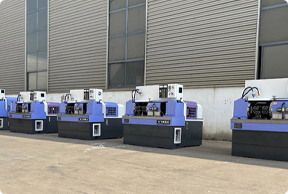
-
 Afrikaans
Afrikaans -
 Albanian
Albanian -
 Amharic
Amharic -
 Arabic
Arabic -
 Armenian
Armenian -
 Azerbaijani
Azerbaijani -
 Basque
Basque -
 Belarusian
Belarusian -
 Bengali
Bengali -
 Bosnian
Bosnian -
 Bulgarian
Bulgarian -
 Catalan
Catalan -
 Cebuano
Cebuano -
 Corsican
Corsican -
 Croatian
Croatian -
 Czech
Czech -
 Danish
Danish -
 Dutch
Dutch -
 English
English -
 Esperanto
Esperanto -
 Estonian
Estonian -
 Finnish
Finnish -
 French
French -
 Frisian
Frisian -
 Galician
Galician -
 Georgian
Georgian -
 German
German -
 Greek
Greek -
 Gujarati
Gujarati -
 Haitian Creole
Haitian Creole -
 hausa
hausa -
 hawaiian
hawaiian -
 Hebrew
Hebrew -
 Hindi
Hindi -
 Miao
Miao -
 Hungarian
Hungarian -
 Icelandic
Icelandic -
 igbo
igbo -
 Indonesian
Indonesian -
 irish
irish -
 Italian
Italian -
 Japanese
Japanese -
 Javanese
Javanese -
 Kannada
Kannada -
 kazakh
kazakh -
 Khmer
Khmer -
 Rwandese
Rwandese -
 Korean
Korean -
 Kurdish
Kurdish -
 Kyrgyz
Kyrgyz -
 Lao
Lao -
 Latin
Latin -
 Latvian
Latvian -
 Lithuanian
Lithuanian -
 Luxembourgish
Luxembourgish -
 Macedonian
Macedonian -
 Malgashi
Malgashi -
 Malay
Malay -
 Malayalam
Malayalam -
 Maltese
Maltese -
 Maori
Maori -
 Marathi
Marathi -
 Mongolian
Mongolian -
 Myanmar
Myanmar -
 Nepali
Nepali -
 Norwegian
Norwegian -
 Norwegian
Norwegian -
 Occitan
Occitan -
 Pashto
Pashto -
 Persian
Persian -
 Polish
Polish -
 Portuguese
Portuguese -
 Punjabi
Punjabi -
 Romanian
Romanian -
 Russian
Russian -
 Samoan
Samoan -
 Scottish Gaelic
Scottish Gaelic -
 Serbian
Serbian -
 Sesotho
Sesotho -
 Shona
Shona -
 Sindhi
Sindhi -
 Sinhala
Sinhala -
 Slovak
Slovak -
 Slovenian
Slovenian -
 Somali
Somali -
 Spanish
Spanish -
 Sundanese
Sundanese -
 Swahili
Swahili -
 Swedish
Swedish -
 Tagalog
Tagalog -
 Tajik
Tajik -
 Tamil
Tamil -
 Tatar
Tatar -
 Telugu
Telugu -
 Thai
Thai -
 Turkish
Turkish -
 Turkmen
Turkmen -
 Ukrainian
Ukrainian -
 Urdu
Urdu -
 Uighur
Uighur -
 Uzbek
Uzbek -
 Vietnamese
Vietnamese -
 Welsh
Welsh -
 Bantu
Bantu -
 Yiddish
Yiddish -
 Yoruba
Yoruba -
 Zulu
Zulu
Understanding CE Certification for Thread Rolling Machines and Relevant HSN Code Details
Understanding CE Certification and HSN Code for Thread Rolling Machines
In the manufacturing sector, particularly in metalworking, thread rolling machines play a crucial role in creating threads on fasteners such as screws, bolts, and nuts. These machines are efficient and provide superior thread quality compared to other processes. However, when dealing with international trade and compliance, understanding CE certification and the Harmonized System of Nomenclature (HSN) code is essential for manufacturers and exporters.
What is CE Certification?
CE certification is a mandatory conformity mark for certain products sold within the European Economic Area (EEA). The letters CE stand for Conformité Européenne, which translates to “European Conformity.” This certification indicates that a product meets EU safety, health, and environmental protection standards.
For thread rolling machines, obtaining CE certification is significant for manufacturers who wish to market their machines in Europe. The process involves rigorous evaluation and testing to ensure that the machinery complies with relevant EU directives, such as the Machinery Directive (2006/42/EC) and the Low Voltage Directive (2014/35/EU).
To achieve CE certification, manufacturers must draft a Technical File, which includes detailed documentation of the design, manufacturing process, and risk assessment. They must also conduct a Conformity Assessment procedure, which can require third-party testing by a notified body. Once all requirements are met, manufacturers can affix the CE mark on their products, allowing for free circulation within the European market.
Understanding HSN Code
The Harmonized System of Nomenclature (HSN) codes are internationally standardized numerical codes for classifying traded products. These codes facilitate international trade by ensuring that all countries classify goods uniformly. The HSN code system is developed by the World Customs Organization (WCO) and is updated periodically to reflect changes in trade patterns and technology.
ce certification thread rolling machine hsn code

For thread rolling machines, the HSN code is vital for customs clearance, import duties, and compliance with various regulations. This code helps identify the machine specifically in international trade and facilitates smoother transactions across borders.
In India, for instance, thread rolling machines are classified under a specific HSN code, which is crucial for GST (Goods and Services Tax) purposes. The correct HSN code ensures that manufacturers or importers pay the appropriate tax rates and avoid legal complications.
Importance of CE Certification and HSN Code
The significance of CE certification cannot be overstated, as it is often a prerequisite for gaining access to the European market. Without CE certification, manufacturers risk their products being barred from entry or facing significant fines. Moreover, CE certification enhances a company’s reputation, indicating a commitment to quality and safety.
On the other hand, understanding and using the correct HSN code for thread rolling machines allows companies to navigate the complexities of international trade more effectively. It ensures compliance with local and international regulations and prevents potential disputes during customs processing.
Conclusion
Both CE certification and HSN codes play pivotal roles in the global trade of thread rolling machines. As manufacturers seek to expand their presence in international markets, understanding these concepts becomes imperative. By ensuring compliance with CE standards and correctly classifying products with HSN codes, businesses can enhance their marketability and operational efficiency, ultimately leading to growth and success in the competitive landscape of manufacturing.
